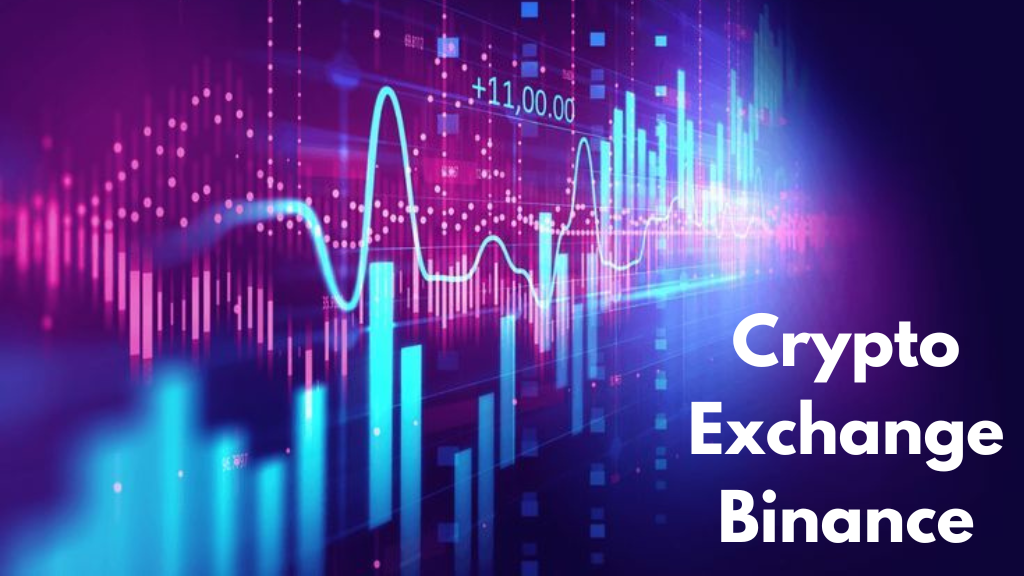Glossary
Crypto Glossary: Your A–Z Guide to Understand Every Crypto Term
When you first step into the world of cryptocurrencies, it can feel like learning an entirely new language. Words like blockchain, DeFi, staking, halving, and smart contracts pop up everywhere — and if you don’t know what they mean, you can easily get lost in a conversation or worse, misunderstand something important when investing. This is where a crypto glossary becomes your best friend.
This guide will break down the most common — and even some advanced — crypto terms you’ll come across. You’ll not only learn what each term means in simple, everyday English, but also why it matters and how it affects your crypto journey. Think of this as your pocket dictionary for crypto — one you can revisit anytime you’re stuck.
Why You Need a Crypto Glossary
Crypto is a fast-evolving space filled with technical jargon, slang, and even memes that become actual tokens overnight. Staying up to date can feel overwhelming. But here’s the thing — you don’t need to memorize every term. Instead, focus on understanding the key words and concepts that help you grasp how crypto works in the real world. For example, knowing what a blockchain is, how smart contracts function, or what gas fees mean can save you time, money, and confusion.
Many new investors lose money or fall for scams simply because they didn’t fully understand what they were getting into. By building your crypto vocabulary, you’ll be better equipped to do your own research, follow expert discussions, and make informed decisions.
Business News
Start with the Basics: Fundamental Crypto Terms
At the heart of crypto is the blockchain, a decentralized, digital ledger that records transactions across a network of computers. Every time someone makes a crypto transaction, it gets verified by nodes (computers on the network) and added to a block. When blocks fill up, they’re linked to previous ones, forming a chain — hence, blockchain.
You’ll often hear about decentralization, which means there’s no single authority controlling the network. Instead, it’s run by many participants spread around the world. This gives crypto its biggest appeal: freedom from banks, governments, and middlemen.
Another term you’ll see everywhere is cryptocurrency itself. These are digital assets like Bitcoin, Ethereum, and thousands of altcoins that you can trade, invest in, or use for transactions.
When you hear about miners or validators, think of them as the people or machines that help process and secure transactions. Mining usually refers to proof-of-work systems like Bitcoin, where miners solve complex puzzles to add new blocks. Validators appear in proof-of-stake systems, where they stake their coins to participate in verifying transactions.
Wallets, Keys, and Exchanges
Every crypto user needs a wallet — but this is not like the leather one in your pocket. A crypto wallet is software (or sometimes hardware) that stores your private keys, which are secret codes that give you access to your coins. Your public key or wallet address is like your bank account number — you can share it to receive funds.
You’ll also come across hot wallets (online, connected to the internet) and cold wallets (offline, more secure against hacks). Understanding this basic difference helps you manage your security properly.
When you want to buy or sell crypto, you’ll usually use an exchange — a platform where people trade coins. There are centralized exchanges (CEXs) like Binance or Coinbase, where the company holds your coins and manages the trades. In contrast, decentralized exchanges (DEXs) let you trade directly from your own wallet, without giving up control of your keys.
Essential Crypto Investing Terms
If you’re planning to invest or trade, a few other terms will pop up repeatedly. HODL — a fun misspelling of “hold” — means keeping your coins long-term instead of panic-selling. It comes from the early days when Bitcoin prices were wildly swinging and someone famously wrote “I AM HODLING.”
Altcoins refer to any cryptocurrency that isn’t Bitcoin. These include popular coins like Ethereum, Solana, or Cardano, as well as meme coins like Dogecoin. Some altcoins have strong use cases; others exist mainly for speculation.
Market cap is short for market capitalization — the total value of all coins in circulation. It’s calculated by multiplying the coin’s price by its circulating supply. A high market cap usually means the coin is more established.
When people talk about bull markets and bear markets, they’re describing trends. A bull market means prices are generally rising and investor confidence is high, while a bear market means prices are dropping and fear is widespread.
You may also hear about whales, which are individuals or entities that hold massive amounts of a cryptocurrency. When whales buy or sell in large amounts, they can move prices significantly.
Understanding Blockchain Tech Terms
Going a level deeper, you’ll come across tech-heavy terms like smart contracts, which are self-executing agreements written into code. They automatically run actions once certain conditions are met. Smart contracts are the backbone of decentralized apps (dApps) and DeFi platforms.
Speaking of DeFi, this stands for Decentralized Finance — an ecosystem of applications that let you lend, borrow, trade, and earn interest on your crypto without relying on traditional banks.
Another key term is staking, which involves locking up your crypto to help secure a network and, in return, earn rewards. It’s the proof-of-stake version of mining.
When you make a transaction on blockchains like Ethereum, you’ll pay gas fees, which cover the computing power needed to process your action. These fees can vary wildly depending on network demand.
Business News
Advanced and Emerging Terms
As you dig deeper, you’ll encounter concepts like Layer 1 and Layer 2 solutions. Layer 1s are base blockchains like Bitcoin or Ethereum, while Layer 2s (like Polygon) build on top of them to improve speed and lower costs.
Another big buzzword is NFTs — Non-Fungible Tokens. These are unique digital assets that represent ownership of things like art, music, or in-game items. Unlike coins, each NFT is one-of-a-kind.
Yield farming and liquidity mining pop up often in DeFi discussions. They describe ways to earn extra income by providing liquidity to decentralized exchanges or lending pools.
You may also hear about halving, an event specific to Bitcoin where the reward miners receive is cut in half every four years. This slows the rate at which new bitcoins are created and can affect supply and price.
Crypto Slang and Community Jargon
Part of crypto’s culture is its unique slang. Phrases like “to the moon” mean people expect prices to skyrocket. Bagholder describes someone stuck holding a coin that has dropped significantly. And if someone says “rekt,” they mean an investor lost a lot of money in a short time.
Understanding these informal terms helps you feel more comfortable in community discussions, whether you’re browsing Reddit, reading Twitter threads, or hanging out in Discord servers.
How to Use This Crypto Glossary
The beauty of this crypto glossary is that it’s never truly finished — the industry evolves daily. New words appear, old ones change meaning, and trends come and go. Bookmark this glossary and revisit it whenever you come across something unfamiliar.
As you learn, you’ll find that your confidence grows alongside your vocabulary. You’ll read whitepapers more easily, follow the news with better understanding, and make smarter investment decisions because you’re no longer guessing what things mean.
Final Thoughts: Keep Learning, Stay Curious
Whether you’re investing, trading, or just curious, a solid grasp of crypto terminology is one of the best ways to protect yourself and grow as a participant in this exciting space. The more you know, the better prepared you are to spot opportunities, avoid pitfalls, and talk confidently about your investments.
Keep this crypto glossary by your side as your personal cheat sheet. And remember — every crypto pro once started by asking, “What does that mean?” Stay curious, and you’ll stay ahead.
- All Posts
- Become Partner
- Broker Review
- Crypto
- IPO
- Mutual Fund
- Recent News
- Recent Updates
- Stock Market

Latest Grey Market Premium, Subscription & Listing Update The Midwest IPO GMP today continues to reflect strong investor sentiment as...
LG Electronics IPO GMP: Check Grey Market Premium, Share Price & Listing Update 2025 LG Electronics India made a big...
Jaro Institute IPO GMP – Updated Insights for Investors Jaro Institute IPO GMP – Updated Insights for Investors The Jaro...

Crypto Exchange Binance in 2025 ‒ Legal Status, Features & What’s New What Is Crypto Exchange Binance? Crypto exchange Binance...
By Popular Top Share Brokers

Motilal Oswal
30 days brokerage free trading
Free – Personal Trading Advisor

AngelOne
Free Equity Delivery
Flat ₹20 Per Trade in F&O

Profit mart
Free Equity Delivery
Flat ₹20 Per Trade in F&O

ProStocks
Unlimited @ ₹899/month
Rs 0 Demat AMC

Upstox
FREE Account Opening
Flat ₹20 Per Trade

Paytm Money

Pay ₹0 brokerage for first 10 days
Flat ₹20 Per Trade

Fyers
Free Eq Delivery Trades
Flat ₹20 Per Trade in F&O




